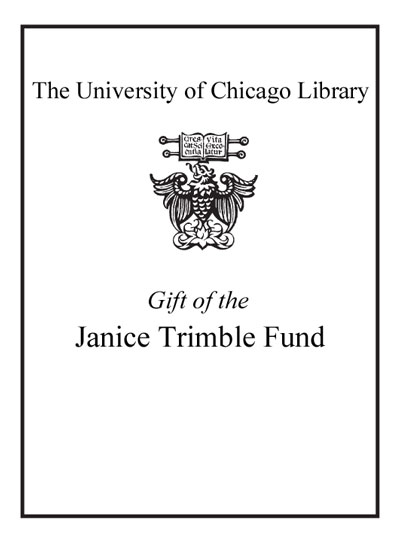Review by Choice Review
Presenting a unique look at a unique Chilean author, Andrews (Univ. of Western Sydney, Australia) offers a book that is both well written and creative. He engages with other critics' opinions on Bolaño (1953-2003), deepening understanding of his core themes--for example, the nature of evil and its relationship to institutional power, be it political, social, or cultural. The author contextualizes Bolaño's fiction within Latin American and global literary fiction, relates biographical information to Bolaño's world view and his narrative techniques, and finds thematic and formal links within his extensive body of work. Andrews pulls from thinkers such as Aristotle, Agamben, Barthes, Bourdieu, Deleuze, Freud, Nietzsche, and Todorov in his analysis of Bolaño's character development and formal techniques. Andrews also illuminates Bolaño's veiled and not-so-veiled references to the literary world. In addition, he challenges certain scholars' readings of Bolaño's use of violence and concludes with a 25-page appendix cross listing the names of fictional victims from the novel 2666 (Spanish, 2004; Eng. tr., 2008) with real victims and the status and details of their cases. Now Andrews is not only the leading translator of Bolaño's work into English but also one of the leading scholars of Bolaño's fiction. Summing Up: Highly recommended. Upper-division undergraduates through faculty. --Lauren E. Shaw, Elmira College
Copyright American Library Association, used with permission.
Review by Publisher's Weekly Review
In this superb volume of criticism, poet Andrews, the English translator of 10 of Bolano's books, deftly analyzes the complex themes and narrative layers of Bolano's fictional universe. Although not primarily a study of reception nor a biography, Andrews excels at explaining the anomalous causes of Bolano's rapid rise to fame in North America. He pinpoints Nazi Literature in the Americas as Bolano's "incubator" for future characters and stories. The personal writing system that Bolano used to produce much of his fiction is shown to be a simple yet rigorous method of "expansion, circulating characters, metarepresentation, and overinterpretation." Andrews arranges his critique thematically, with chapters on "Aimlessness," "Duels and Brawls," "Evil Agencies," and "A Sense of What Matters." In addition, he explains how the influence of Borges's "humor and courage" affected Bolano's beliefs about courage as it relates to the persistence of poetry and literature. As expected from a translator, Andrews displays an intimate familiarity with the novels and stories, and includes many close readings, lengthy quotations, and side-by-side comparisons to illustrate the ways Bolano expanded his plots and characters. He even includes an appendix that maps the fictional murders in 2666 onto the real femicides in Ciudad Juarez, Mexico, to show that Bolano did not exaggerate the scale of this atrocity. An indispensable guide to navigating the rich world of Bolano's fiction. (July) (c) Copyright PWxyz, LLC. All rights reserved.
(c) Copyright PWxyz, LLC. All rights reserved
Review by Library Journal Review
Chilean poet, novelist, and short story writer Roberto Bolano (1953-2003) is all the rage, having achieved far greater fame posthumously than when alive. Andrews (Writing and Society Research Ctr., Univ. of Western Sydney) is an appropriate author for a debut Bolano critical study, having translated ten of the author's works as of this writing and penned several articles, the material from a number of which was reworked for inclusion here. He analyzes Bolano's fiction (2666; The Savage Detectives; By Night in Chile) from a topical rather than a chronological approach and generally emphasizes formal and technical elements over thematic ones. After examining the reasons behind Bolano's meteoric rise to popularity, Andrews addresses the major elements of what he calls the author's fiction-making system, such as the expansion on previously written texts and the Balzacian technique of recurring characters. The chapter discussing the theme of violence influenced by Jorge Luis Borges is particularly enlightening. Andrews furthermore discusses the types of evil characters that pervade the novels. Because Andrews pulls in examples from the entire Bolano corpus, he assumes readers have more than a passing acquaintance with his subject's works, and the academic approach may be beyond the scope of the casual reader. VERDICT Profusely documented and with a thorough bibliography, this full-length critical monograph is a great start to what will, one hopes, be a parade of analytical examinations of Bolano's works.-Lawrence Olszewski, North Central State Coll., -Mansfield, OH (c) Copyright 2014. Library Journals LLC, a wholly owned subsidiary of Media Source, Inc. No redistribution permitted.
(c) Copyright Library Journals LLC, a wholly owned subsidiary of Media Source, Inc. No redistribution permitted.
Review by Choice Review
Review by Publisher's Weekly Review
Review by Library Journal Review

